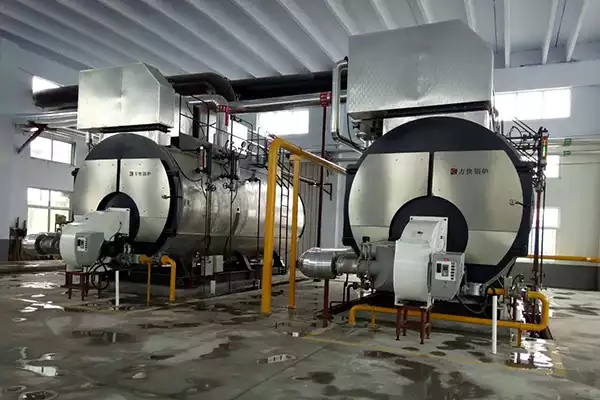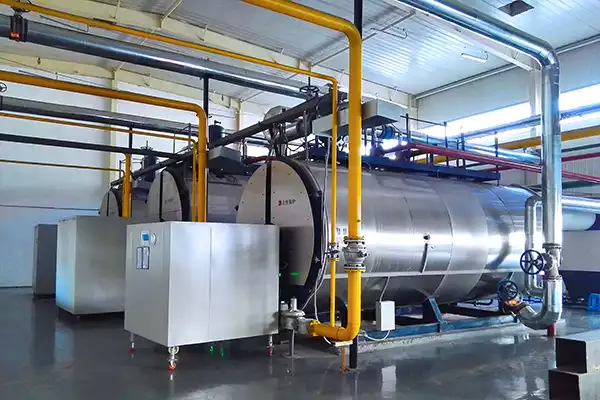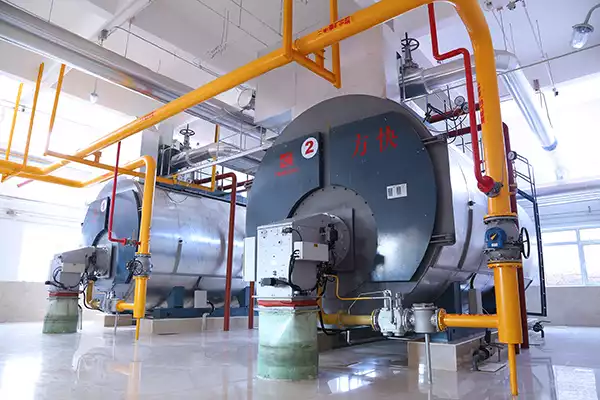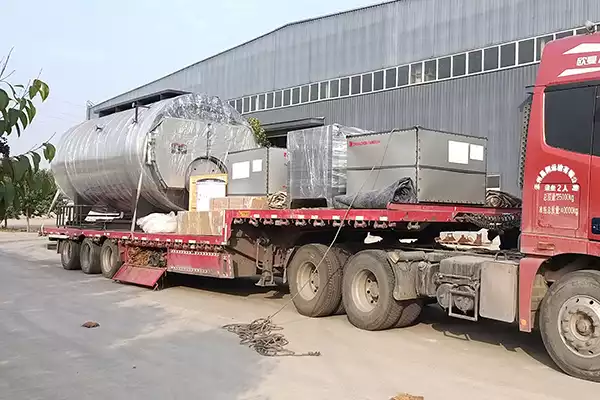

Explore our boiler blog for expert insights, industry updates, and valuable tips on boiler maintenance, efficiency, and more.
Explore our boiler blog for expert insights, industry updates, and valuable tips on boiler maintenance, efficiency, and more.
When you first heard about condensing boilers, you might not be sure if they were right for you. That's why we did a deep dive into understanding everything about these high-efficiency boilers. In this guide, We will introduce How they work, the pros and cons, the cost, and more.
Simply put, a condensing boiler is a next-generation boiler that uses a secondary heat exchanger to extract even more heat, allowing it to achieve over 90% efficiency. This improved efficiency comes from the hot flue gases being cooled below the dew point, causing water vapor to condense into liquid. That change of state releases heat that would have otherwise escaped up the chimney!
Condensing boilers work by extracting more heat from the combustion gases. Here is a quick overview of the process:
Several benefits make condensing boilers a better choice compared to conventional boilers:
Condensing boilers are more than 90% fuel efficient, compared to 60-80% for non-condensing types. This means lower fuel costs for homeowners.
Efficiency reduces carbon dioxide and nitrogen oxide emissions, making boilers better for the environment.
Condensing boilers require less maintenance because lower exhaust gas temperatures minimize component wear.
Boilers do not require large tanks for hot water, making them smaller.
Well-maintained condensing boilers last 15 - 20 years, longer than the traditional ones.
However, condensing boilers also come with a few drawbacks:

The main differences between condensing and non-condensing boilers are:
Condensing boilers and heat pumps both offer high-efficiency operation. Key differences include:
Condensing boilers and combi boilers are frequently used in modern homes to provide heat. A condensing boiler is considered highly efficient because it generally uses less fuel than others but produces the same or higher amount of heat.
On the other hand, a combi boiler is a special kind of condensing boiler that combines both heating and hot water supply, making it compact. Identifying the major features of these two will allow homeowners to get a clear understanding of the heating systems they should get for their homes.
The first thing that you need to take into consideration is understanding the variations between tankless water and condensing boats. These devices do not require tanks to keep hot water ready all the time. Instead, they use an electric or gas burner to heat water when it is being used instantly.
Despite this fact, condensing boilers are normally used for central heating but can also provide hot water.
Choosing a condensing boiler is like choosing a reliable and efficient workhorse for your home’s heating needs.

Finding the right condensing boiler is like choosing a winter coat tailored just for you. It's a crucial step to avoid condensing boiler problems in the future. Let's look at the key factors to consider so you can make the best choice:
Size is a major factor in selecting the ideal boiler. It's a careful balance. If it's too small, you'll wind yourself bundled up in blankets in chilly parts of your house. Conversely, a boiler that is too big for your area is not only unnecessary, but it also equals wasting money and energy and raising your costs needlessly!
It's similar to selecting the proper fuel for the car you drive. Oil, gas, or other types of fuels are considerable options. There are also various types of "gasoline" that each boiler works on. Make sure the fuel type you choose is always readily available to you!
Here's where you'll save the most money. Long-term cost savings are made possible through the boiler's better capacity to convert more fuel into heat. It's similar to getting more warmth for each dollar invested. Always keep in mind that your boiler's efficiency is the return on your investment.
This is where it gets tricky. A lower upfront cost might seem appealing, but think about the long run. An efficient, although slightly pricier, boiler can be kinder to your wallet over time with lower running costs.
Condensing boiler prices depend on the size/heating capacity, brand, and features. Here are some typical price ranges:
Installation costs are an additional expense to factor in when budgeting for a new condensing boiler, typically ranging from $2,000 to $5,000 including labor and materials.
When it comes to installing a condensing boiler, there’s a lot to consider from an economic standpoint. You’re looking at additional costs, usually down somewhere between $2,000 and $5,000. Yes, it’s true that condensing boilers are already expensive. Think of it as an investment, though. Saving energy in the long run tends to offset that initial cost difference.
Q: At what temperature can a condensing boiler operate?
A: Condensing boilers have a really wide operating range - anywhere from 68°F to 180°F. It allows you to integrate with the low-temperature system in your home. Apparently, they work best for return water temperatures around 130-140°F.
Q: Is electricity required to run a condensing boiler?
A: Good question! Yes, condensing boilers need electricity to run internal pumps, fans, controls, and all other components. Unlike some conventional gas boilers, power is not limited to fuel heating.
Q: What maintenance do condensing boilers require?
A: The highlight is employee service year after year. All components will be inspected and heat exchangers cleaned as necessary. You may also need to clean the condensate drain line periodically. Overall, however, the maintenance appears to be less complicated compared to conventional boilers.
Q: How do I know what the right size is for my home?
A: An experienced heating professional can accurately calculate your home’s heat loss in BTUs to help optimize the size of your condensing boiler. Too little can make you cold, while too much is a waste of energy. Get an engineer to assess heating needs and recommend an appropriate boiler size.
Q: How long should a condensing boiler last?
A: Experts say that a properly maintained condensing boiler can have a very long life - anywhere from 15-20 years or more! Over time, heat exchangers are the components most likely to fail. However, following maintenance tips will help maximize your lifespan.
Overall, a condensing boiler is an efficient and environmentally friendly heating device, but it also requires correct installation, use, and maintenance. By reading this guide, you should have a better understanding of condensing boilers. If you have any questions or concerns, please feel free to ask us.

We have more than 20 years of experience in boiler system equipment research and development and manufacturing. And committed to designing and producing boilers that suit your needs, including fire-tube, water-tube, and steam boilers, while also staying up-to-date with the latest technological boiler.
Get in touch